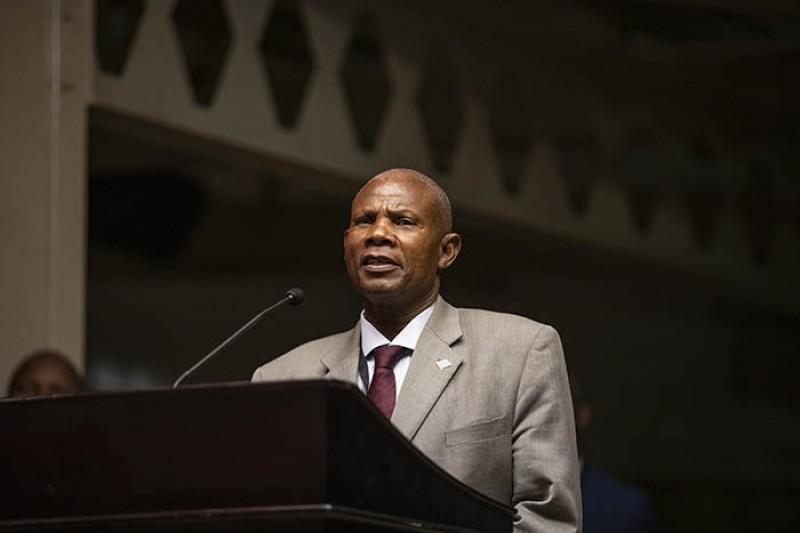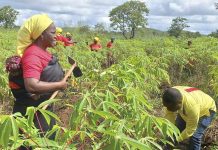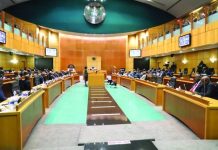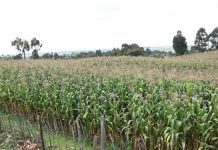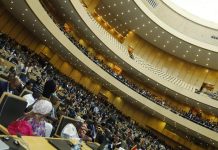Africa-Press – Botswana. Choirs are cancelled. Football tournaments are cancelled. Home coming music festivals are cancelled. Home travel is discouraged and the recent floods almost cancelled that too.
As if coronavirus (COVID-19) had afflicted Batswana enough, a new variant appeared days before Christmas, threatening all the testing, numbers of cases and ultimately the economy all citizens have been trying to protect in a year better left forgotten.
Authorities in South Africa last week confirmed that a new variant of the virus is behind rising cases in that country, with daily cases now frequently topping 9,000. “A variant of the SARS-COV-2 Virus – currently termed 501.V2 Variant – has been identified by our genomics scientists here in South Africa,” Minister of Health Zweli Mkhize said on Twitter. “The evidence that has been collated, therefore, strongly suggests that the current second wave we are experiencing is being driven by this new variant.”
For Botswana, the development is staggering. After nine months of closures, the country opened its international borders in December, with an immediate uptick in travel by locals to our major trading partner, South Africa, as well as steady arrivals from there as well.
According to published scientific data, the new variant in South Africa carries a heavier viral load and transmits more aggressively than the “normal” COVID-19. In addition, there is a possibility that the current tests being used in Botswana to pick the virus could read ‘negative’ because they do not detect the markers of the new variant. While testing protocols are in place requiring passengers to prove COVID-19 negative before crossing into and out of the country, the new development has authorities questioning whether the current tests are able to detect the new variant. The worst case scenario would be visitors from Botswana to South Africa and vice versa carrying the new variant between countries unawares and local testing facilities unable to pick it as well.
At present, cases in Botswana are rising at about 100 per day and while recoveries are also robust, a new variant carrying a heavier viral load and faster transmission would almost certainly push the local health sector’s capacity to its limits. Batswana, meanwhile, are simply trying to observe the time-honoured ritual of going home for Christmas after a nightmarish nine months since the pandemic’s arrival.
As a year, 2020 will go down as one of the worst in living memory. A year in which government was forced to make a decision between lives and livelihoods, closing borders, instituting a lockdown and in the process bringing life as we knew it to an abrupt halt.
Even mundane activities such as walking to a semausu for bread and milk became illegal at some point, and even when restrictions were lifted, everyday activities such as going to a
salon or enjoying one’s favourite beverage returned with limitations.
After its initial onset in the country at the end of March, Batswana fought against COVID-19, complying with all the restrictions and regulations that turned the country into a nation of mask-wearers, queuing helplessly and endlessly to fill out screening forms at every business while observing the all important “social distancing”.
From churches, to funerals and weddings, it appeared the virus had a personal vendetta against the traditional Setswana ritual of coming together, a custom that from time immemorial has been the bedrock of communal harmony. Schools, sporting activities, entertainment events and others were all affected, with school children in Gaborone facing frequent interruptions to their schedules due to outbreaks of the relentless virus.
Between the onset and about June, the country seemed to have Covid-19 under control, with international bodies commending the brisk actions taken. Local cases at the time were averaging between two and five a day and at one point on June 10, the country had just one active case of COVID-19.
From July, however, as restrictions eased on most activities and testing was ramped up, cases shot up rapidly and the latest results show that the trend has generally continued. As at December 18, the country had 797 active cases, with 608 cases registered between December 14 and 18. To their credit, authorities have kept up with testing, and as at December 18, about 514,000 tests had been conducted since the outbreak.
Authorities have warned that while the level of recoveries is ‘balancing’ the new cases and helping health capacity keep up with the trend, any worsening of the situation could see tough decisions taken and a return to the dark days of the lockdowns suffered earlier this year.
The festive season travel, authorities say, will be a test of the trends in cases. The authorities have been contemplating a festive season travel ban in order to deal with the possible surge of cases post Christmas. But according to recent remarks from Covid-19 Task Team deputy coordinator, Professor Mosepele Mosepele, it appears that the plan has been deferred despite fears.
“There’s no country comes from holidays with better numbers,” Mosepele recently said. “There’s a high chance that some of the people who have already left for the holidays do not have symptoms and they will spread the disease. “No one wants a lockdown or deaths or closure of business but Batswana should adhere to what we have saying that reduce the trips, stay away from crowds and wear your masks.”
The festive break is welcome relief, but what 2021 holds for Batswana is a complete unknown.

